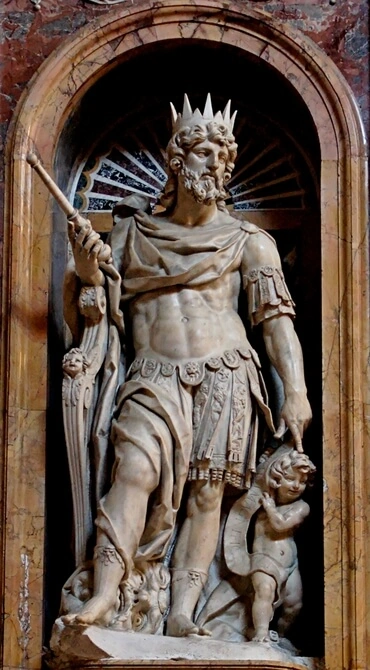1
Tedy řekl David: Jest-li ještě kdo pozůstalý z domu Saulova, abych jemu učinil milosrdenství pro Jonatu?
2
Byl pak služebník domu Saulova, jehož jméno bylo Síba. I zavolali ho k Davidovi. I řekl král jemu: Ty-li jsi Síba? Odpověděl: Jsem služebník tvůj.
3
Řekl jemu král: Jest-liž ještě kdo z domu Saulova, abych jemu učinil milosrdenství Boží? Odpověděl Síba králi: Ještě jest syn Jonatův chromý na nohy.
4
I řekl jemu král: Kdež jest? Odpověděl Síba králi: Tam jest v domě Machiry, syna Amielova v Lodebar.
5
Protož poslav král David, vzal ho z domu Machiry, syna Amielova z Lodebar.
6
A když přišel Mifibozet syn Jonaty, syna Saulova, k Davidovi, padl na tvář svou a poklonil se. I řekl David: Mifibozete. Kterýž odpověděl: Aj, služebník tvůj.
7
Řekl jemu David: Neboj se, nebo jistě učiním s tebou milosrdenství pro Jonatu otce tvého, a navrátím tobě všecka pole Saule otce tvého, a ty jídati budeš za stolem mým vždycky.
8
Kterýž pokloniv se, řekl: Co jest služebník tvůj, že jsi se ohlédl na psa mrtvého, jakýž jsem já?
9
Zatím povolal král Síby, služebníka Saulova a řekl jemu: Cožkoli měl Saul i všecka čeled jeho, to jsem dal synu pána tvého.
10
Budeš tedy jemu spravovati rolí, ty i synové tvoji i služebníci tvoji, a snášeti budeš, aby měl syn pána tvého pokrm, kterýž by jedl, ale Mifibozet syn pána tvého jídati bude vždycky za stolem mým. (Měl pak Síba patnácte synů a dvadceti služebníků.)
11
Odpověděl Síba králi: Vedlé všeho, jakž přikázal pán můj král služebníku svému, tak učiní služebník tvůj, ačkoli i Mifibozet mohl by jídati za stolem mým jako jeden z synů královských.
12
Měl také Mifibozet syna malého, jemuž jméno bylo Mícha; a všickni, kteříž bydlili v domě Síbově, byli za služebníky Mifibozetovi.
13
A tak Mifibozet zůstával v Jeruzalémě, proto že vždycky za stolem královským jídal; a byl kulhavý na obě noze.







